To stage Verdi’s Il Trovatore, they say, is easy: you just need the four greatest singers in the world. The Royal Opera has applied this principle to La forza del destino. Jonas Kaufmann sings Alvaro, Anna Netrebko is his beloved Leonora, and Ludovic Tézier her brother Carlo, with the mighty Ferruccio Furlanetto completing the set as the priest Padre Guardiano. The results have been pretty much as you might expect, ranging from the now-traditional speculation about whether Kaufmann would actually show up (he did) to reports of tickets changing hands privately for £5,000 apiece.
And yes, it was extraordinary: a four-hour rush of some of the most glorious singing anyone born after 1970 will probably ever have heard in one place. Netrebko’s voice is phenomenal, capable even at its softest of floating luminously over a full orchestra, and seemingly controlled by an internal dimmer switch that can turn a phrase from a diaphanous whisper up to a searchlight blaze. Netrebko was the evening’s knockout (and her raucous fanbase made sure that we knew it), gleaming brilliantly against Furlanetto’s austere, dignified bass, and the bronzed declamation of Tézier, who grew ever more clenched as his character pursued his vendetta. Tézier has said that Carlo represents ‘everything we hate’, leaving us with the paradox that an artist can give a towering performance without, apparently, understanding fundamental aspects of his role.
Kaufmann was the weakest member of the central cast. The patchiness of his voice — especially in quieter passages — was particularly noticeable in such company, for all the obvious sincerity of his performance and his golden ability to knock a high note for six, at least once he’s worked up to it. That was the hairline crack that admitted cold reality to the evening’s glamour. In truth, Kaufmann and Netrebko made a fairly stiff couple: not much romantic spark there. Alessandro Corbelli (a droll, soup-slurping Fra Melitone) and Veronica Simeoni’s sultry Preziosilla seemed more at ease within their characters.
The problem is that La forza, of all operas, demands a comprehensive suspension of disbelief, and I never quite felt the soul-shaking, full-body thrill that opera alone can deliver when all of its elements truly coalesce. Christof Loy’s staging is a vanilla affair, with the usual shabby-chic empty room serving as bedchamber and monastery alike. Loy’s notion that Leonora has suffered since childhood from religious mania is interesting, but the way that Alvaro practically assaults her during their botched elopement violates the meaning of both character and plot. Huge back-projections showed the cast gurning in close-up: an embarrassing distraction.
Antonio Pappano, however, was heroic, marshalling grand brooding paragraphs and sombre cello and trombone tones into the most gripping interpretation I’ve heard from him: less a blood-and-guts melodrama than a long, doom-laden roll of thunder. The chorus was on fire too. This Forza might yet shake down into something great; let’s hope so, because opera can — should — be more than an expensively acquired collection of star performances. The critic of the Daily Telegraph described it as ‘the biggest event of the current operatic season’, and that’s probably true, though coming one week after Graham Vick’s Birmingham Lady Macbeth of Mtsensk, I wish it wasn’t.
At the opposite end of the operatic food-chain, two student companies presented two engaging rarities. The Royal College of Music staged Offenbach’s 1867 operetta Robinson Crusoé, which whips Defoe’s tale into a featherweight ensemble soufflé before lurching into all-out panto. It pinged along. Tenor Joel Williams was a dashing Robinson and Catriona Hewitson sprinkled champagne coloratura as his ringletted sweetheart Edwige. The audience seemed to enjoy the curiously dated translation (jokes about trade unions?), though the piece’s cheerful colonialism and chorus of cannibal islanders mean that we probably won’t see it again any time soon.
University College Opera, meanwhile, pitched an orchestra and chorus of (presumably) non-music students and a handful of professional principals at the UK stage première of Smetana’s Libuse. Kirstin Sharpin sang with glowing dignity in the title role (a semi-legendary Bohemian queen) and Robert Davies was eloquent as her beloved Premysl. Director Cecilia Stinton updated the whole thing to a sort of Slavonic Canary Wharf, making Libuse’s struggle a parable of female leadership in a male-dominated office.
That allowed for some witty touches. ‘On my right, the tablets of the Law’ intones Libuse, brandishing an iPad. But Smetana’s epic trumpets and Wagnerian flourishes demand something more stirring than laptops and lanyards. In the final scene, Libuse prophesies the future glories of the Czech nation — ‘Jaroslav like an eagle flies, with steel armour on his powerful chest’ — and someone ambled across the stage in what looked like M&S businesswear. Still, there was something touching about a Czech composer celebrating his national myths (however preposterous) with such pride, and seeing the result performed with such warmth.
Got something to add? Join the discussion and comment below.
Get 10 issues for just $10
Subscribe to The Spectator Australia today for the next 10 magazine issues, plus full online access, for just $10.
You might disagree with half of it, but you’ll enjoy reading all of it. Try your first month for free, then just $2 a week for the remainder of your first year.

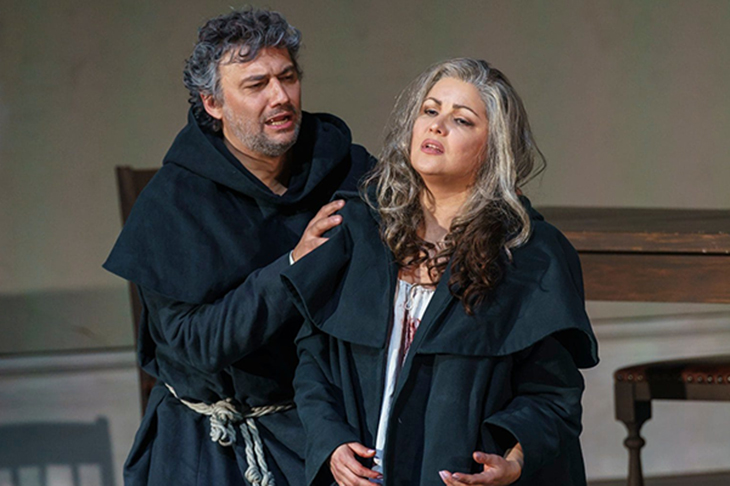
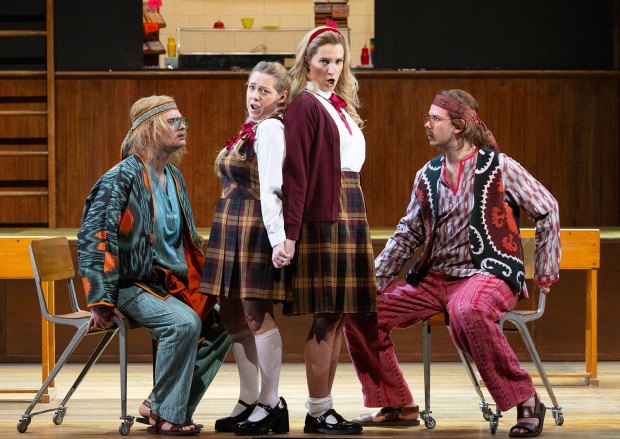
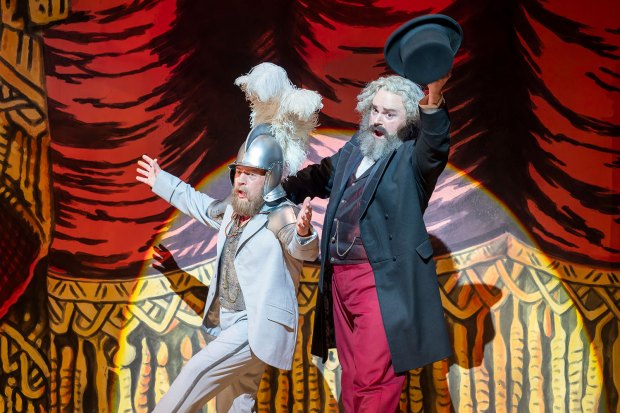
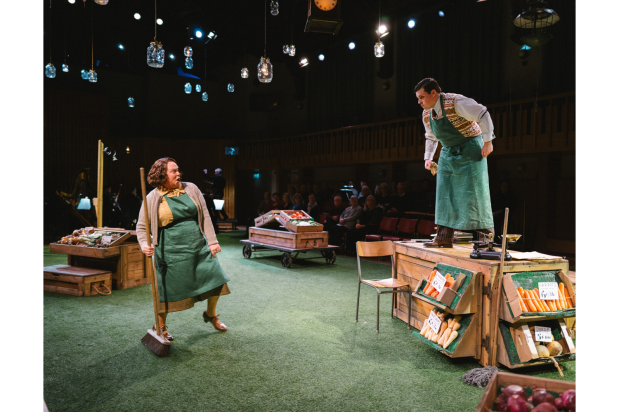

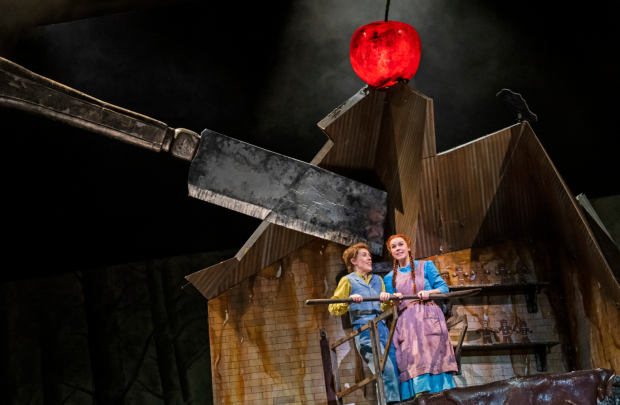
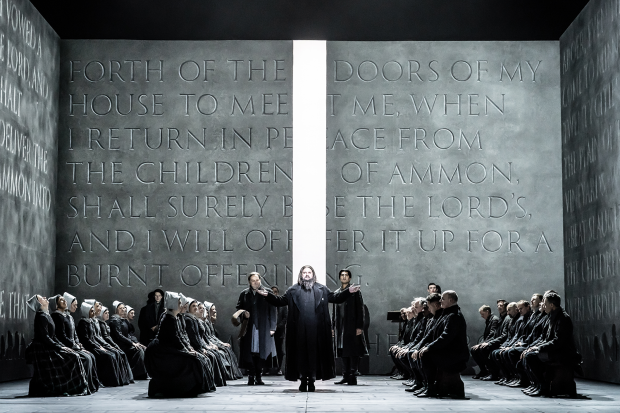






Comments
Don't miss out
Join the conversation with other Spectator Australia readers. Subscribe to leave a comment.
SUBSCRIBEAlready a subscriber? Log in